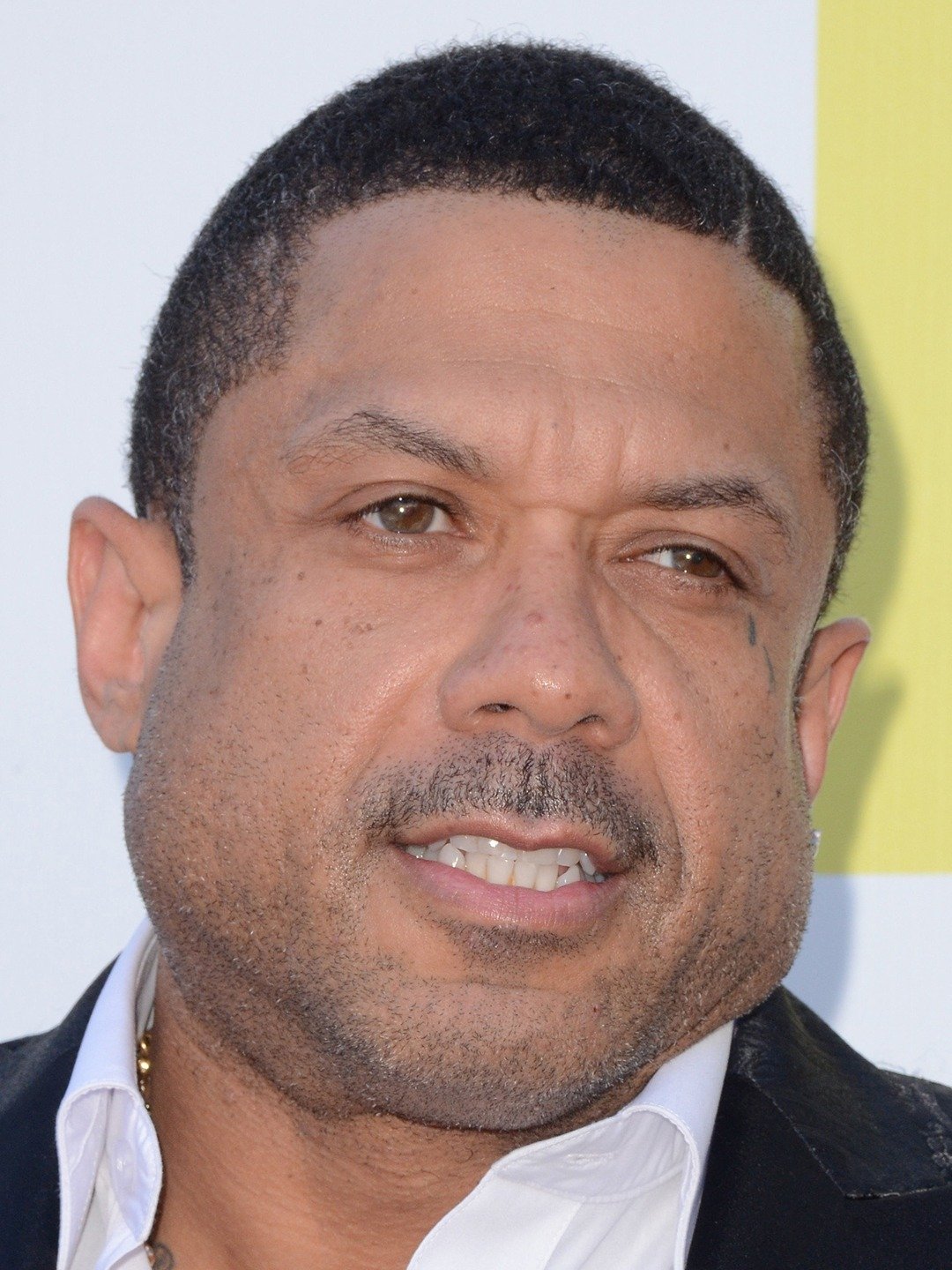Many people, it seems, often find themselves wondering about certain phrases, particularly when they involve a person's name. A common question that pops up, perhaps in conversation or even in a quick online search, is something like, "Who's Benzino?" This query, while seemingly straightforward, actually opens up a really interesting conversation about how we use language and even how we find information in the digital world. It's almost as if a simple question can lead us down a path of discovery, you know, about words themselves and the way data works.
When you ask "Who's Benzino?", you are, in a way, asking for a person's identity or perhaps their current activity. This simple combination of words, "who's" followed by a name, brings to light a couple of things we often take for granted in everyday talk. It's a question that, frankly, many of us use without a second thought, but it holds a little secret about English grammar, and how we put sentences together to get answers. So, we're going to pick apart that phrase a bit, to really get a handle on what's going on with it.
This little phrase, "who's Benzino," really serves as a great starting point for looking at how we talk and write. We'll explore what "who's" truly means, how it differs from a word that sounds just like it, and even how it connects to the idea of finding out information about someone or something online. It's a journey, if you will, into the parts of speech that make our language tick, and how those parts help us figure things out. Essentially, it's all about getting clear on who someone is, or what they're doing, just by paying a little attention to the words we choose.
- Blackout Nautical Curtains
- Law And Order Svu Jennifer Love Hewitt
- Modli Swimwear
- Loving Diana
- Cowboy Boots With Sweatpants
Table of Contents
- The Grammatical Identity of "Who's Benzino"
- Why Do We Get "Who's Benzino" Mixed Up?
- "Who's Benzino" - Beyond Simple Questions
- How Does "Who's Benzino" Connect to Digital Identity?
- What Can We Learn from "Who's Benzino"?
The Grammatical Identity of "Who's Benzino"
When someone asks "Who's Benzino?", they are, in a way, trying to figure out a person's current state or perhaps their very being. This phrasing, it turns out, really gets at the core of how we use certain words to ask about people. The word "who's" itself holds a lot of meaning, more than you might at first guess. It's a short form, you see, a kind of linguistic shortcut that helps us speak a little more quickly and smoothly. So, when we put it together with a name like "Benzino," we're essentially asking for some basic information about that individual. It's a rather common thing we do, yet it can be a bit tricky to sort out sometimes, especially for those who are still getting a handle on the finer points of English. We'll look at this a little closer now, to make things really clear.
"Who's Benzino" - A Question of Contraction
So, let's consider the word "who's" in our question, "Who's Benzino?" You know, that little apostrophe and 's' really tell us something important. It's what we call a contraction, which is just a fancy way of saying two words have been squished together. In this case, "who's" is a short way to say either "who is" or "who has." For instance, if you hear someone say, "Who's at the door?" they are really asking, "Who is at the door?" Or, if someone asks, "Who's got the time?" they mean, "Who has got the time?" It's a pretty neat trick our language does, isn't it? This means when you hear or read "who's Benzino," the person asking is almost certainly wondering, "Who is Benzino?" They want to know about the person's identity, or perhaps what they are doing right now. It's a direct inquiry, you see, about someone's existence or their present action. This is the primary way we use "who's" in everyday talk, and it's a very common thing to come across.
Think about it like this: if you were to spell out the question fully, you would say, "Who is Benzino?" That's the core meaning behind the contracted form. The short version, "who's," just makes our conversations flow a little more easily. It's quite typical for English speakers to use these shortened forms, as a matter of fact, because they make speech feel more natural and less stiff. So, next time you see "who's" followed by a name, you can be pretty sure it's asking for someone's identity or what they are up to. It's a very straightforward grammatical point, once you get the hang of it, and it really helps in getting your meaning across quickly. This simple idea, really, forms the backbone of many common questions we pose about people.
- Textured Wool Rug
- Zoe Buckman Movies
- Officer Daniels Miami Dade Lawsuit
- New Thriving Near Me
- Sesame Street Kermit And Grover
"Who's Benzino" - Exploring Possession
Now, while "who's" usually means "who is" or "who has," there's another word that sounds exactly the same but has a completely different job. That word is "whose." This is where things can get a little bit confusing for some people, honestly. "Whose" is all about showing ownership or a relationship. For example, if you see a pair of shoes lying around, you might ask, "Whose shoes are these?" You're not asking "Who is shoes are these?" or "Who has shoes are these?" You're asking about the owner of the shoes. So, when we talk about "whos Benzino," it's pretty important to know that "whose" with no apostrophe is the one that shows something belongs to someone. It indicates possession, like "the person whose car is parked here." It's a subtle but really important difference, because using the wrong one can change the whole meaning of what you are trying to say. This is a common source of mix-ups, you know, because the sounds are identical.
Consider a situation where you might use "whose" with a name. You might say, "Benzino, whose music is popular, will perform tonight." Here, "whose" links the music to Benzino, showing that the music belongs to him or is associated with him. It's a way of connecting a person to something they own, create, or are otherwise related to. But if you're just asking "Who's Benzino?", you're not asking about something he possesses. You're asking about him directly, about his identity. So, the key is to remember that "whose" is for ownership, and "who's" is a shortened form of "who is" or "who has." It's a pretty clear distinction once you focus on it, and it helps a lot with putting your thoughts into words accurately. This distinction, in some respects, is a cornerstone of clear communication in English.
Why Do We Get "Who's Benzino" Mixed Up?
It's a really common thing for people to find "whose" and "who's" a bit tricky, and it's easy to see why, honestly. The main reason, of course, is that they sound exactly alike. When you say them out loud, there's no difference at all, and that can cause some confusion when you're writing. You know, our brains often process sounds first, and then we try to match them to the right written form. So, if you're just going by how a word sounds, you might easily pick the wrong one when you are putting words on paper. This happens to a lot of people, even those who speak English all the time. It's a pretty natural mistake, given the way our language works. The fact that they are what we call homophones, words that sound the same but have different spellings and meanings, is essentially why this little bit of grammar can trip us up so often. It's a bit like trying to tell twins apart when they're dressed exactly the same.
Another reason for the mix-up, perhaps, is that both words come from the same root word, "who." They are both forms of that pronoun, which refers to a person. So, because they share this common origin and sound identical, it can be a bit hard to remember which one does what. You might be thinking about a person, and then you have to decide if you're asking "who is" that person, or if you're asking about something that belongs to that person. This mental step can be skipped if you're not paying close attention, leading to the wrong choice. It's a subtle point, but a very important one for clear communication. As a matter of fact, many people still find these two words particularly confusing, even after years of using English. It's just one of those quirks of the language, you know, that keeps us on our toes when we write.
"Who's Benzino" - Beyond Simple Questions
When we ask "Who's Benzino?", we are not just looking at a simple grammatical choice between "who's" and "whose." This question, you see, also touches upon a slightly more involved idea about how we refer to people in sentences, specifically whether they are performing an action or receiving one. This distinction is about subject pronouns and object pronouns, and it's a bit more of a detailed point in grammar. While "who's" itself is a contraction, the underlying "who is" or "who has" uses "who" as a subject. This is important because "who" and "whom" are often mixed up too, and understanding the role of "who" helps us get a fuller picture of how questions like "Who's Benzino?" really work in a sentence. It's all about the role the person plays in the action, really.
"Who's Benzino" - Understanding the Subject and Object
So, let's talk about "who" for a moment, as it's the foundation of "who's." The word "who" is what we call a subject pronoun. This means it's used for the person or thing that is doing the action in a sentence. For example, in the sentence "Who is going to help me move house on Saturday?", "who" is the one performing the action of helping. It's the subject of the verb "is going." In the phrase "Who's Benzino?", the "who" part is acting as the subject of the implied verb "is." It's asking about the identity of the person who "is" Benzino. This is pretty straightforward, you know, once you think about it in terms of who is doing what. On the other hand, there's "whom," which is an object pronoun. That means it's used for the person or thing that is receiving the action. For example, "To whom did you give the book?" Here, "whom" is receiving the action of giving. While "who's" doesn't directly involve "whom," understanding that "who" is a subject pronoun helps clarify its role in questions like "Who's Benzino?" It's a bit of a deeper dive into how sentences are built, really, but it helps make sense of why we use "who" in these kinds of inquiries. Basically, it’s about who is doing the doing.
It's important to keep in mind that "who" functions as the subject, the one carrying out the verb's action. So, in "Who's Benzino?", the "who" is asking about the individual who performs the action of "being" Benzino. This might seem a little abstract, but it's the core of how these questions are structured. You see, when we ask about someone's identity, we are typically asking about them as the subject of their own existence, if that makes sense. This helps us to frame our questions correctly, ensuring we are using the right form for the person we are asking about. It's a rather simple rule, but it has a big impact on how clear our communication becomes. As a matter of fact, getting this right is a pretty big step in mastering English grammar. It's all about making sure the words you pick fit the job they need to do in the sentence, you know, whether that person is doing something or having something done to them.
How Does "Who's Benzino" Connect to Digital Identity?
Beyond the rules of grammar, the question "Who's Benzino?" can also make us think about how we find information about people or things in the digital world. While we've been talking about the grammatical meaning of "who's," the idea of finding out "who is" someone or something has a parallel in how we look up details online. This is where the concept of a "WHOIS lookup" comes into play, which is a different kind of "who is" entirely. It's not about grammar at all, but about getting public information about internet resources. So, while "who's Benzino" is a spoken or written question about a person, a WHOIS lookup is a tool for finding out about a website or an IP address. It's a different kind of inquiry, but it shares that basic human
- Images Of Outsiders
- Naked Loving Sex
- Matt Smith Girlfriend 2024
- Purple Shampoo On Grey Hair Before And After
- Hummingbird Tree


